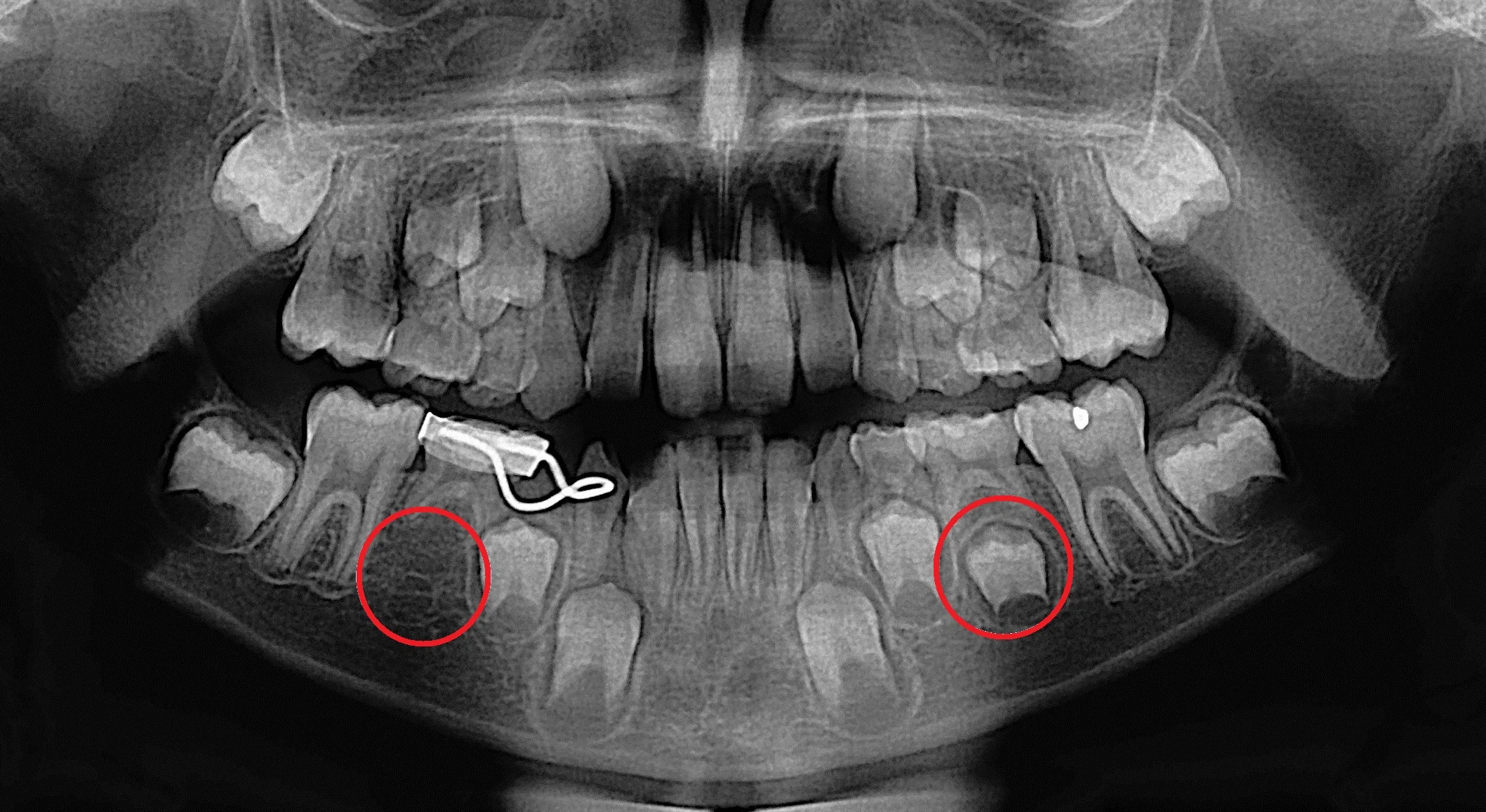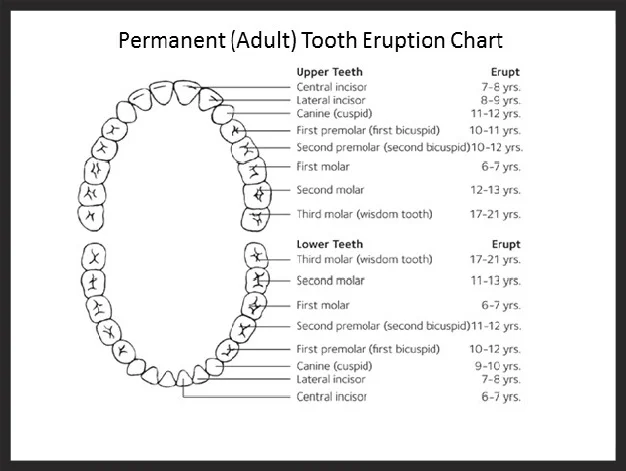As your child grows, their baby teeth will be replaced by permanent teeth and you will see changes in their jaws and face too. The first baby tooth is lost around age six and by age 12 most children will usually lose all 20 of their baby teeth. By age 12-14, most children will have all their adult teeth except their wisdom teeth.
Around the age five or six, most children will begin to lose their front teeth. Each child is unique and this process can start earlier or later. Many times there is a genetic component. If one of the child’s parents or siblings were fast or slow to begin this process, there is a chance that this child will be similar. If your child has not lost any front teeth by age seven, it is a good idea to have a dentist examine your child’s mouth. An x-ray can be used to confirm the adult teeth are forming in the jaw.
Panoramic x-ray on this nine year old reveals congenitally missing adult pre-molar. You can see on the left of the screen there is no tooth bud forming as compared to the same area on the right side.
The first adult teeth will usually come in between the ages of six and seven. In general, the permanent tooth will begin to be visible in your child’s mouth about six months after the baby tooth comes out. Your child will have a mix of baby and adult teeth for a while. Their smile may look uneven. They will have some big teeth, some small teeth, even some large spacing between teeth. Don’t worry! This is normal! As your child grows, the adult teeth will usually even out. Adult teeth typically appear darker when compared to baby teeth, this is also normal.
Age six is usually when the first molars (often called six 6 year molars) will come in. The six year molar is the most common tooth that must be removed later in life due to the tooth having a cavity or gum disease so it is important to protect this tooth when your child is young! For many children, sealants can be used to protect their six year molars. A sealant is a tooth colored material applied to the deep grooves and pits on the biting surface of the tooth that a toothbrush can’t reach. It forms a barrier to protect their tooth from getting a cavity. Sealing a tooth is quick and painless. It does not require anesthesia (no shots!) and can last for several years.
Even after sealants are applied, it is still important to help your child brush because as your child begins to get their adult teeth, their baby teeth play a very important role in keeping their teeth straight! Baby teeth hold the space for the adult teeth underneath them to come in and if a baby tooth is lost too early, the other teeth can shift into the space. This could lead to lack of space for the adult tooth. It may come out crooked, in the wrong place, or not even be able to come out at all!
If your child does lose a baby tooth early, Dr. Berry may recommend a space maintainer. It is a plastic or metal retainer that holds open the space left by the missing tooth. Once the adult tooth begins to appear, it is time for the Dr. Berry to remove the retainer. Holding the space for the adult tooth is important to help prevent or lessen the need for orthodontics (braces) in the future.
Age seven is the perfect time to have the development of your child’s bite evaluated by a Dr. Berry. We will also take a panoramic x-ray to confirm that all the adult teeth are forming. There are many lifelong dental problems that can be avoided by treating a bad bite early
Examples include:
1. Crooked, crowded teeth may keep the jaws from developing properly and evenly.
2. Severe bad bites may keep a person from eating and speaking normally.
3. Crooked teeth are more difficult to keep clean which can lead to tooth decay and gum disease.
4. Teeth that are out of line are more likely to get worn down and need expensive dental work to restore.
5. A bad bite or crooked teeth may make your child feel less confident about their looks and decrease their involvement in activities and socializing.
There will be many changes to your child’s smile while they are transitioning from baby to adult teeth. Dr. Berry and the team at Lakes Region Dental will be able to help answer any questions along the way and ease any concerns you may have. Regular check-ups are the easiest, yet most important, step you can take to start your children on their way to a lifetime of dental health.


